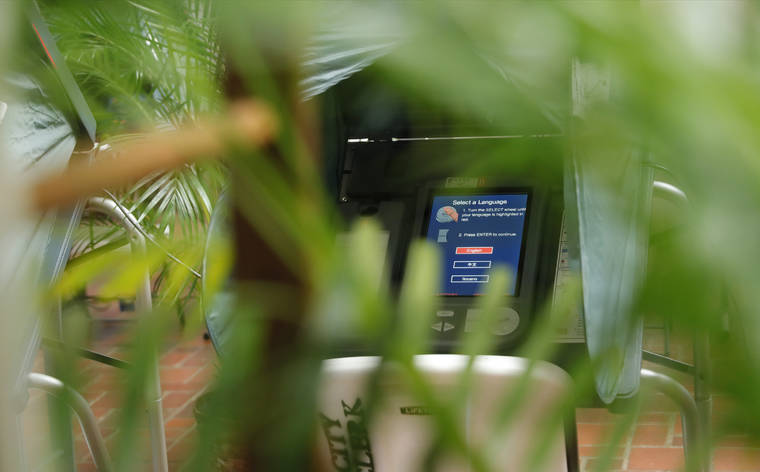Three nonprofits are calling on the state attorney general and election officials to provide translated ballots and voting materials to non-English and Hawaiian language speakers.
The letter, sent Tuesday, was signed by Maui Attorney Lance Collins on behalf of the American Civil Liberties Unions of Hawaii Foundation, Common Cause Hawaii and the Hawaii Institute for Philippine Studies. Collins noted that state law requires Hawaii agencies provide documents in languages other than English.
In this year’s election, the translated language materials for Honolulu voters are only made available in Ilokano and Chinese upon request at the Honolulu City Clerk’s office, according to Collins.
“All other voting materials in the ballot package, including ballots, instructions, and information, are exclusively in English and no notation is made on neighbor island ballot packages,” Collins said in his letter to state Attorney General Clare Connors.
Sandy Ma, executive director for Common Cause Hawaii, said it’s a burden for non-English speakers to search for the information about language assistance on the ballots.
“You can imagine if you speak a different language, become a naturalized citizen and are able to vote — the burden on you to request the assistance instead of having someone say to you, ‘Look if you need help, this is where you go,’” Ma said in an interview. “You don’t know that help is available to request it.”
Collins said that translated services are also needed for people who speak Hawaiian, Tagalog, Japanese, Korean, Vietnamese and Spanish. The goal is to have translated materials for language minorities statewide.
Statewide, there are 58,000 Ilokano speakers, 67.8% of whom citizens; 58,000 Tagalog speakers, 78.9% of whom are citizens; 45,500 Japanese speakers, 73% of whom are citizens; 29,600 Chinese speakers, 84.8% of whom are citizens; and 26,200 Spanish speakers, 84.8% of whom are citizens, according to Department of Business, Economic Development and Tourism.
On Oahu, there are 44,700 Tagalog speakers, 38,700 Japanese speakers, 37,500 Ilokano speakers, 28,700 Chinese speakers and 17,700 Spanish speakers. There are also 17,800 Korean speakers and 9,400 Vietnamese speakers.
Maui and Kauai counties have about 15,900 Ilokano speakers, 8,500 Tagalog speakers, 4,600 Spanish speakers and 2,800 Japanese speakers.
“I have family members who are Ilokano and Visayan. … If I don’t help them, they can’t vote,” Collins said in an interview.
Additionally, the letter said that the state has an obligation to provide translated elections materials and ballots in the Hawaiian Language and said that “it’s long overdue.”
The letter cited the 1978 Hawaii State Constitution, including the “reinclusion of the Hawaiian language as an official language” in the state.
“We therefore ask the state to commit to providing language access to language minority voters by providing translated ballots and election materials if not in the ballot package, at least upon request, as well as alerting voters to the availability of these materials in all legally required languages and Hawaiian in the ballot package mailed to all voters for the upcoming general election,” the letter said.
Collins asked the state to respond to the letter by Aug. 18.


 Stay updated on Hawaii and national elections coverage
Stay updated on Hawaii and national elections coverage